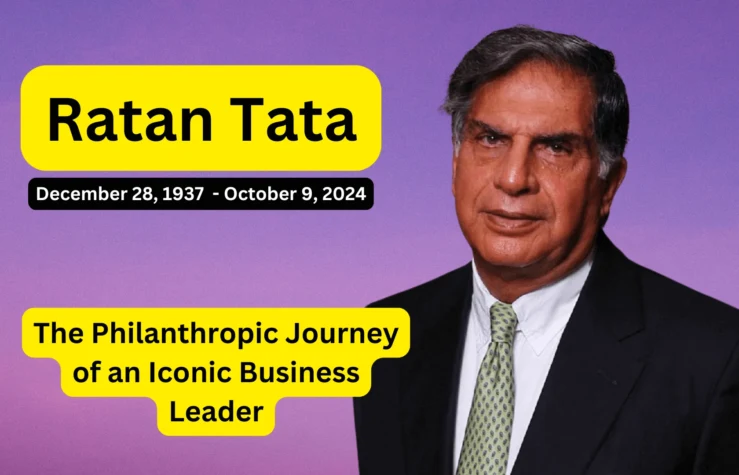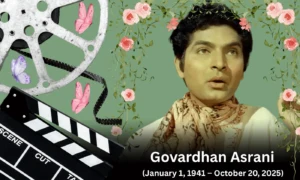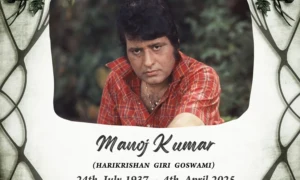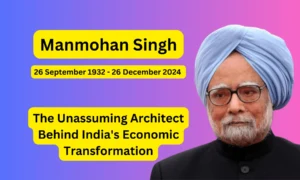Introduction
Brief Introduction to Ratan Tata
Ratan Tata, an iconic figure in Indian business, was born on December 28, 1937, in Navsari, Gujarat. He served as the chairman of Tata Sons from 1990 to 2012 and played a pivotal role in transforming the Tata Group into one of India’s largest and most respected conglomerates. His vision and leadership propelled the company into global markets, ensuring its relevance in an ever-evolving economic landscape. Known for his humble demeanor and strategic acumen, Ratan Tata left an indelible mark not only on the Tata Group but also on the entire Indian industry.
Importance of His Contributions to Indian Industry and Society
Ratan Tata’s contributions to Indian industry and society were immense and far-reaching. Under his leadership, Tata Group expanded its footprint beyond India, acquiring several international companies, including Jaguar Land Rover and Corus Steel, which demonstrated his commitment to globalizing Indian business. His focus on innovation led to the launch of the Tata Nano, a car designed for affordability, aiming to provide mobility solutions to millions.
Moreover, Ratan Tata was a proponent of corporate social responsibility, emphasizing the need for businesses to contribute positively to society. He actively promoted initiatives in education, healthcare, and rural development through the Tata Trusts, ensuring that the benefits of industrial growth reached marginalized communities. His approach to business was characterized by a balance between profit and purpose, making him a respected figure in both corporate and philanthropic circles.
Early Life and Education
Background and Family History
Ratan Tata hailed from a prominent Parsi family with deep roots in Indian industry. His great-grandfather, Jamshedji Tata, founded the Tata Group in 1868, laying the groundwork for a legacy that Ratan would later uphold. After the tragic death of his father, Naval Tata, when Ratan was just 10 years old, he was raised by his paternal grandmother, who instilled in him values of integrity and service. These early experiences shaped Ratan’s character and instilled a sense of responsibility toward his family’s business.
Education and Early Influences
Ratan Tata’s educational journey began at the Campion School in Mumbai, followed by St. Xavier’s College, where he completed his bachelor’s degree in architecture. He furthered his education at Harvard Business School, obtaining a degree in Advanced Management in 1975. This blend of technical knowledge and managerial training equipped him with the skills necessary to navigate the complexities of the corporate world. Influenced by leaders and mentors throughout his educational journey, he developed a keen understanding of the importance of ethical leadership and innovative thinking.
Initial Experiences in the Family Business
Ratan Tata’s initial experiences in the Tata Group began in 1962 when he joined the company as a trainee at Tata Steel in Jamshedpur. He took on various roles, gaining hands-on experience in different facets of the business, from managing production to understanding operational challenges. This exposure allowed him to appreciate the intricacies of running a large organization and the importance of fostering a strong corporate culture. His early involvement in the family business not only provided him with a solid foundation in industrial operations but also strengthened his resolve to honor the Tata legacy and contribute to the company’s future success.
Career Highlights
Leadership at Tata Group
In 1990, Ratan Tata assumed the chairmanship of Tata Sons, the holding company of the Tata Group, following the retirement of J.R.D. Tata. At that time, the group faced significant challenges in a rapidly changing global market. Ratan’s vision was clear: he aimed to transform Tata into a more competitive and modern enterprise while staying true to its founding principles of ethics and social responsibility. His leadership style, characterized by humility and approachability, fostered an environment of collaboration and innovation, allowing the group to thrive during a pivotal time in Indian industry.
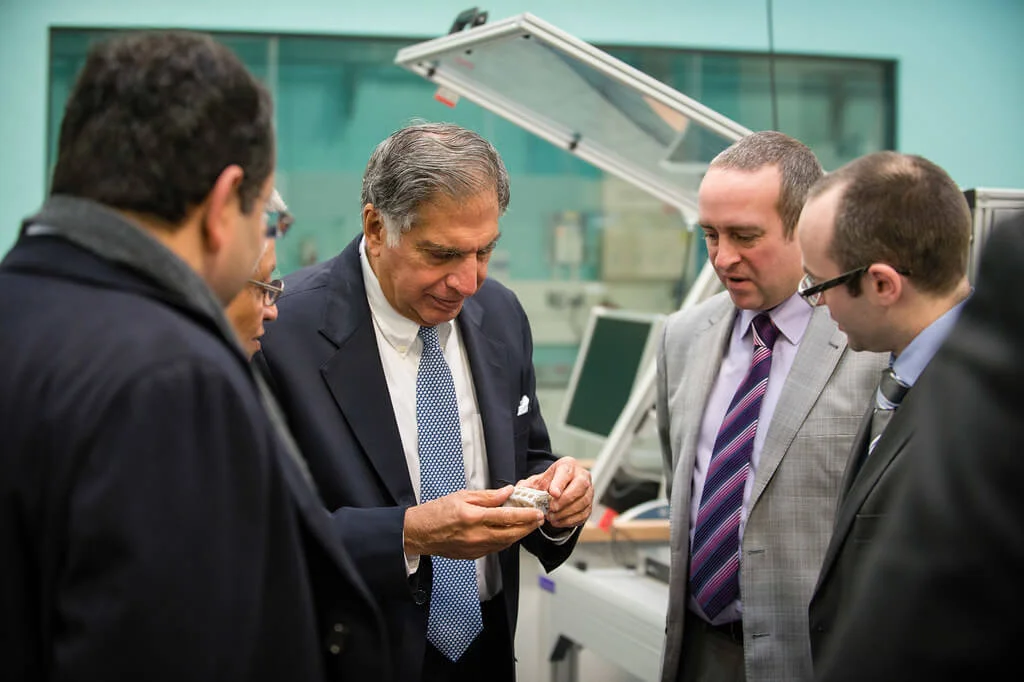 Source: Flickr
Source: Flickr
Under Ratan Tata’s stewardship, the Tata Group undertook a series of major acquisitions and expansions that significantly enhanced its global presence. One of the landmark acquisitions was the purchase of Tata Steel’s Corus Group in 2007, which made Tata Steel one of the top ten steel producers in the world. This acquisition not only diversified the group’s portfolio but also positioned it as a key player in the global steel market.
Another notable acquisition was the purchase of Jaguar Land Rover in 2008 from Ford, which revitalized the luxury car brands and led to their resurgence in the global automotive market. Ratan Tata’s strategic vision and commitment to innovation allowed the Tata Group to diversify its operations and strengthen its competitive edge, thereby solidifying its status as a global conglomerate.
Innovations and New Initiatives
In 2008, Ratan Tata unveiled the Tata Nano, which was marketed as the world’s cheapest car. This innovative vehicle aimed to provide affordable mobility to millions of Indians, particularly those who had previously relied on two-wheelers for transportation. The launch of the Nano was a testament to Ratan’s commitment to innovation and his understanding of the needs of the common man. Despite its initial challenges in the market, the Tata Nano represented a significant leap in automotive engineering and showcased Tata’s ability to disrupt conventional paradigms in the automobile industry.
Ratan Tata also championed sustainability and social responsibility initiatives throughout his tenure. He recognized the importance of addressing environmental concerns and integrating sustainable practices within the operations of the Tata Group. Under his leadership, Tata adopted several green initiatives, such as reducing carbon emissions and implementing eco-friendly manufacturing processes.
Additionally, Ratan Tata was instrumental in fostering a culture of corporate social responsibility (CSR) within the group. He believed that businesses had a duty to contribute positively to society, leading to the establishment of various initiatives focused on sustainable development, community welfare, and environmental conservation. His foresight in emphasizing sustainability ensured that the Tata Group not only pursued profit but also prioritized the well-being of the planet and its people.
Philanthropy and Social Contributions
Tata Trusts and Their Impact
Ratan Tata’s commitment to philanthropy was exemplified by his association with Tata Trusts, which controlled a significant portion of the Tata Group’s wealth. These trusts played a crucial role in supporting various social initiatives across India, focusing on healthcare, education, and rural development. Under Ratan’s guidance, Tata Trusts initiated several impactful programs, such as improving access to education for underprivileged children and enhancing healthcare facilities in rural areas.
The trusts also focused on addressing pressing social issues, including sanitation, water management, and women’s empowerment. Ratan Tata’s emphasis on philanthropy reflected his belief that corporate success should be matched by a commitment to social good, further reinforcing the Tata legacy of giving back to society.
Initiatives in Education, Healthcare, and Rural Development
Ratan Tata’s philanthropic vision extended to numerous initiatives aimed at improving education and healthcare across India. He supported projects that provided scholarships to deserving students, enabling them to pursue higher education. The Tata Group also established schools and educational institutions that emphasized holistic development and quality learning.
In healthcare, Ratan Tata was involved in setting up hospitals and healthcare centers that offered affordable medical services, particularly in underserved regions. The Tata Memorial Hospital in Mumbai became renowned for its cancer treatment and research, reflecting Ratan’s commitment to advancing healthcare in India.
Additionally, he championed rural development initiatives that focused on improving living standards in rural communities. Through programs aimed at enhancing agricultural practices, providing vocational training, and promoting entrepreneurship, Ratan Tata contributed to the empowerment of rural populations, thereby fostering sustainable development.
Advocacy for Corporate Responsibility
Throughout his career, Ratan Tata was a strong advocate for corporate responsibility. He believed that businesses should operate with a sense of accountability and ethics, prioritizing the interests of stakeholders over mere profit. His approach to leadership emphasized transparency, integrity, and ethical conduct, setting a benchmark for other corporate leaders to follow.
Ratan Tata’s commitment to corporate responsibility extended beyond the Tata Group, as he actively participated in discussions and initiatives aimed at promoting responsible business practices across the industry. His influence inspired a generation of leaders to prioritize ethical considerations in their decision-making processes, reinforcing the idea that businesses could thrive while making a positive impact on society.
Personal Life
Insights into His Personality and Values
Ratan Tata was known for his humility, integrity, and commitment to ethical leadership. Despite his immense wealth and status, he remained approachable and grounded, valuing the contributions of all employees within the Tata Group, from entry-level workers to senior executives. His leadership style was characterized by compassion and empathy, fostering a collaborative work environment that encouraged innovation and creativity.
Ratan’s values were deeply rooted in the principles instilled in him by his family, particularly his grandmother, who emphasized the importance of service to society. He often spoke about the necessity of businesses acting as responsible citizens, believing that corporate success should align with social responsibility. This belief guided his decisions throughout his career, ensuring that the Tata Group pursued not just profits, but also a greater purpose.
Interests and Hobbies
Ratan Tata had a wide range of interests and hobbies that reflected his multifaceted personality. He was an avid aviation enthusiast, often spending time flying and even obtaining a pilot’s license. His passion for aviation extended to his efforts in promoting the aviation industry in India, where he saw opportunities for growth and innovation.
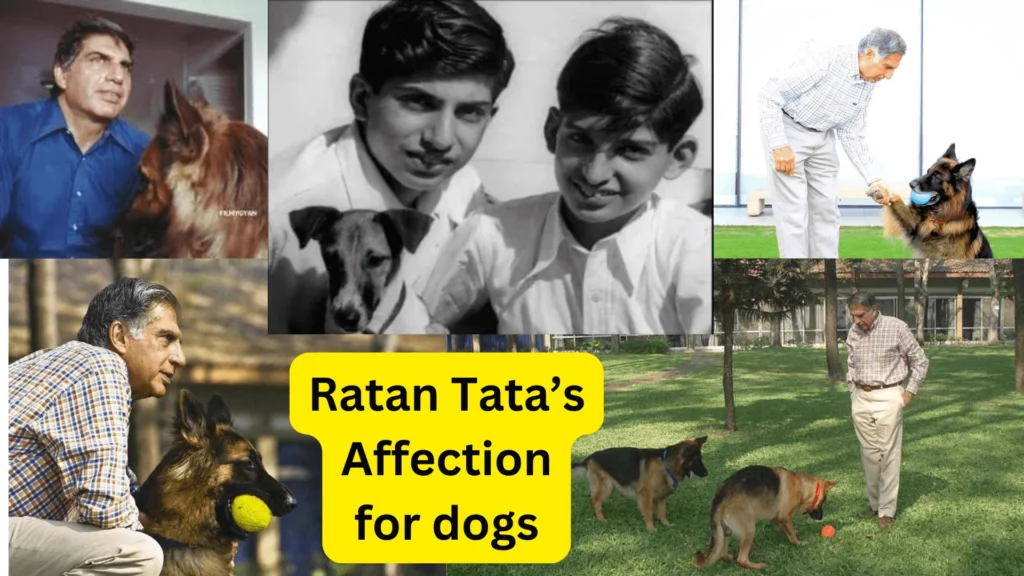
Additionally, Ratan was a keen dog lover, particularly fond of his pet dogs, which he often credited for providing him companionship and comfort. He also had a profound interest in architecture and design, a passion that originated from his educational background in architecture. This interest influenced his involvement in several projects, including the design and construction of various Tata facilities and community buildings.
Furthermore, Ratan Tata was known for his commitment to personal fitness, often engaging in activities such as walking and maintaining a balanced lifestyle. His interests and hobbies not only showcased his diverse personality but also reflected his belief in leading a fulfilling life beyond professional achievements.
Influence on Future Generations of Leaders
Ratan Tata’s legacy extended far beyond his tenure at the Tata Group; he profoundly influenced future generations of business leaders in India and worldwide. His emphasis on ethical leadership, corporate responsibility, and innovation set a benchmark for aspiring entrepreneurs and executives. Many looked up to him as a role model, inspired by his ability to balance business acumen with compassion for society.
Through mentorship programs, public speaking engagements, and his involvement in educational institutions, Ratan Tata actively shared his insights and experiences with young leaders. He encouraged them to prioritize integrity, creativity, and social impact in their pursuits. His influence on future generations was evident in the way he motivated young minds to think beyond conventional business practices and consider the broader implications of their work on society.
Recognition and Awards
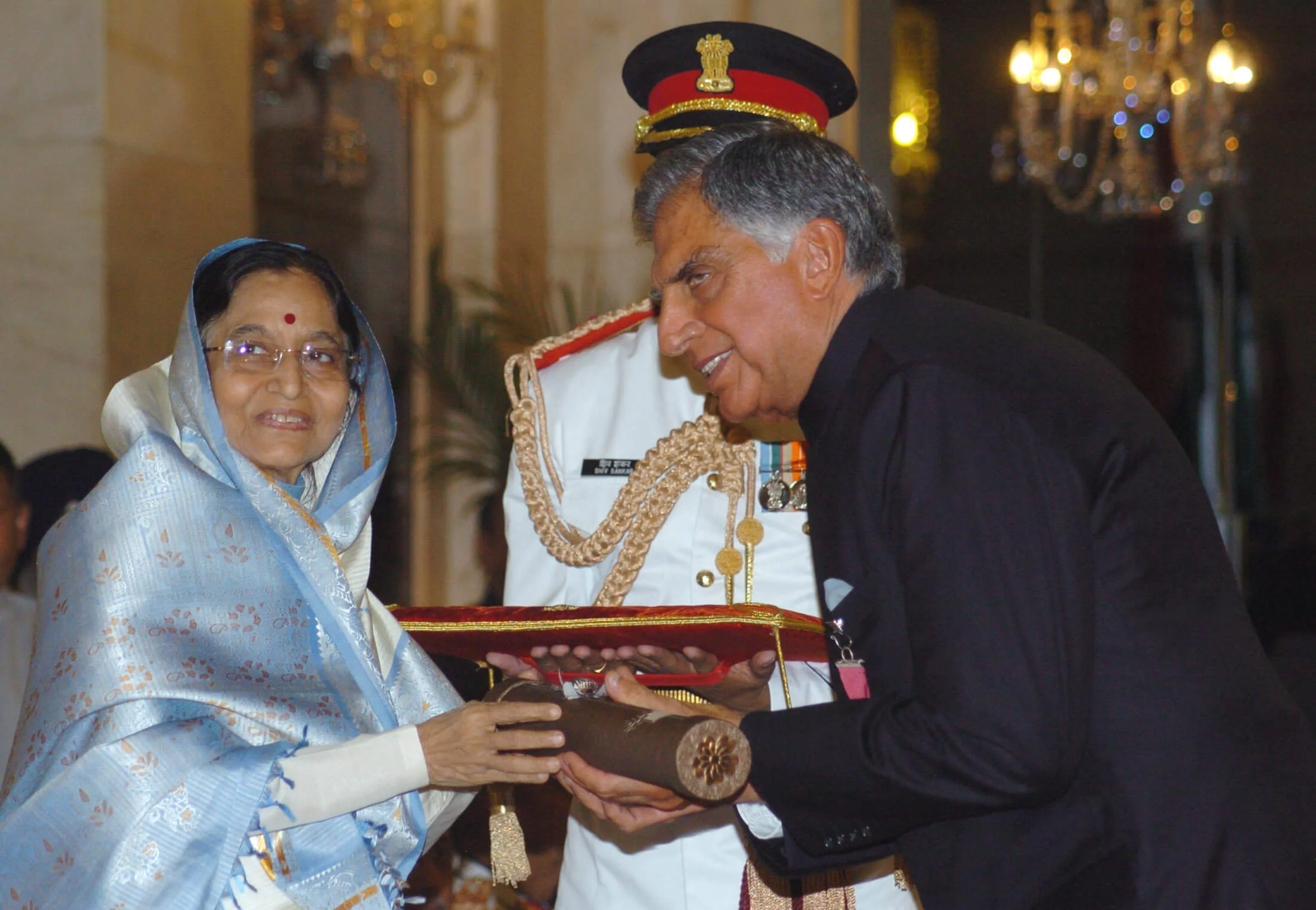 Source: Wiki commons
Source: Wiki commons
Ratan Tata’s contributions to business and society were recognized through numerous awards and honors, both nationally and internationally. He received several prestigious accolades, including the Padma Bhushan in 2008, one of India’s highest civilian awards, which acknowledged his distinguished service in trade and industry. His leadership in the Tata Group also earned him the title of “Business Leader of the Year” by various organizations, celebrating his vision and strategic insights.
In addition to these honors, Ratan Tata was recognized globally for his contributions to corporate governance and social responsibility. He received honorary degrees from several universities, reflecting his impact on business education and leadership.
Contributions to Business and Society Acknowledged
Ratan Tata’s legacy of ethical leadership and social responsibility earned him admiration and respect across various sectors. His commitment to philanthropy, particularly through Tata Trusts, was acknowledged through numerous awards celebrating corporate social responsibility. His initiatives in healthcare, education, and rural development received accolades from various NGOs and governmental organizations, highlighting the positive impact of his philanthropic efforts.
His contributions to sustainable business practices also garnered recognition. Ratan Tata was often invited to speak at international forums and conferences, where he shared his insights on the importance of integrating sustainability into corporate strategy. His voice became a beacon for advocating responsible business practices, further solidifying his role as a thought leader in both business and philanthropy.
His Death
Date and Circumstances Surrounding His Passing
Ratan Tata passed away on October 9, 2024, leaving behind a profound legacy that had a lasting impact on the Indian industrial landscape and society as a whole. His death was attributed to natural causes, as he had been dealing with health issues in his later years. Ratan Tata had continued to engage in philanthropic activities and offer guidance to the Tata Group until shortly before his passing, reflecting his deep commitment to the organization and its values. The news of his death sent shockwaves throughout India and the global business community, as he was not only a respected businessman but also a beloved figure who embodied the principles of ethical leadership and corporate responsibility.
Reactions from the Public, Industry, and Notable Figures
Following the announcement of Ratan Tata’s death, a wave of condolences and tributes poured in from various quarters. The public mourned the loss of a leader who had significantly shaped modern India, with many expressing their sorrow through social media and public forums. Messages of condolence came from prominent political leaders, business magnates, and celebrities, all of whom highlighted his contributions to the nation and his unwavering commitment to social causes.
Industry leaders hailed him as a visionary who transformed the Tata Group into a global powerhouse while maintaining a strong focus on ethical practices. Several notable figures from different sectors, including government officials, entrepreneurs, and social activists, lauded Ratan Tata for his role in advancing corporate social responsibility and his efforts in empowering the underprivileged. His death was regarded as a significant loss, not only to the Tata Group but also to the larger Indian community, which had benefited immensely from his philanthropic initiatives.
Legacy and the Impact of His Death on the Tata Group and India
Ratan Tata’s passing marked the end of an era for the Tata Group and left a profound impact on the organization. His leadership had been characterized by a strong emphasis on innovation, ethical business practices, and a commitment to social responsibility. In the wake of his death, the Tata Group reaffirmed its commitment to uphold the values that Ratan Tata had instilled within the organization, promising to continue his legacy of excellence and social responsibility.
The news of his death prompted discussions about his remarkable contributions to various sectors, including education, healthcare, and rural development. Many organizations and institutions initiated campaigns to honor his legacy by continuing his philanthropic initiatives, ensuring that his vision for a better society remained alive. Ratan Tata’s influence on the corporate landscape inspired future generations of leaders to embrace responsible business practices, further solidifying his impact on India’s growth story.
Conclusion
Ratan Tata’s life was marked by extraordinary contributions to both the business world and society. As the chairman of the Tata Group, he led the organization through significant transformations, expanding its global footprint and diversifying its portfolio. His commitment to corporate social responsibility and philanthropy set a benchmark for other businesses to follow. The Tata Trusts, under his guidance, made impactful contributions to education, healthcare, and rural development, improving the lives of countless individuals across India.
Ratan Tata inspired countless future leaders with his vision of ethical business practices and corporate responsibility. His belief that businesses should not only focus on profit but also consider their impact on society resonated deeply with emerging entrepreneurs and executives. Through his mentorship and public engagements, he encouraged young leaders to prioritize integrity and innovation, instilling a sense of purpose in their professional journeys.
Ratan Tata’s life and work exemplified the essence of leadership that transcends mere financial success. He embodied the values of compassion, integrity, and a commitment to social good, leaving behind a legacy that will continue to inspire generations to come. His contributions to the Tata Group and society at large underscored the importance of responsible leadership in the business world. As India and the global community mourned his passing, they also celebrated a life dedicated to making a difference—a legacy that will undoubtedly endure and influence future leaders striving to create a positive impact in the world.

